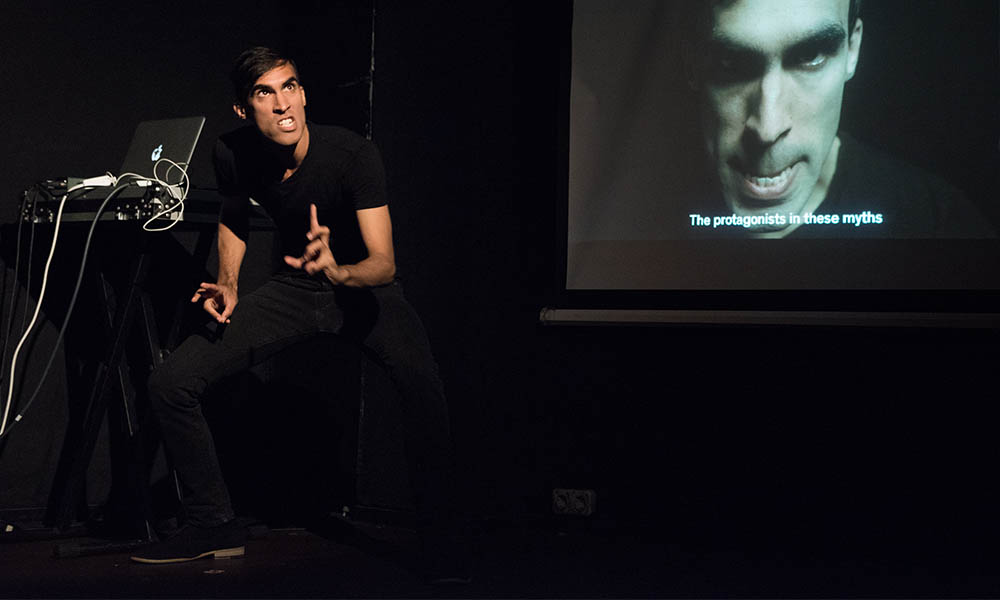
Gabriel Dharmoo’s musical practice encompasses composition, vocal improvisation and ethnomusicological research.
After studying with Éric Morin at Université Laval, he completed studies in composition and analysis at the Conservatoire de musique de Montréal with Serge Provost, graduating with two “Prix avec grande distinction”, the highest honour to be awarded. His works have been performed in Canada, the U.S.A, France, Germany, the Netherlands, Poland, Australia, Singapore and South Africa. In addition to winning 6 prizes from the SOCAN Foundation Awards for Young Composers, he was awarded the 2011 Fernand-Lindsay Prix d’Europe composition prize and the Canada Council for the Arts’ 2011 Robert Fleming Prize. He is an associate composer at the Canadian Music Centre as well as a member of SOCAN and the Canadian League of Composers.
Having researched Carnatic music with 4 renowned masters in Chennai (India) in 2008 and 2011, his personal style explores the theme of post-exoticism and the interplay between tradition and novelty.
As a vocalist, Gabriel has sung across Canada (Montréal, Québec, Vancouver, Banff, Winnipeg, Halifax, Guelph), in Berlin and Köln (Germany) as well as in Amsterdam and Utrecht (Netherlands), with improvisation gigs and his acclaimed multidisciplinary performance project Anthropologies imaginaires. In 2013/14, a development grant from the Canada Council for the Arts allowed him to work with vocalists Phil Minton (UK) and Ute Wassermann (Germany), as well as yodel and overtone specialist Christian Zehnder (Switzerland) and beatboxer Shlomo (UK). Inspired by contrasting vocal expressions in different cultures in time and space, he conceives his voice as both a raw and a sophisticated instrument. His musical language is a blend of diverse classical, avant-garde and traditional elements, mediated by an interest in linguistics and ethno/zoomusicology.
He is currently enrolled in Concordia University’s PhD “Individualized Program” with Sandeep Bhagwati (Music – Principal Supervisor), Noah Drew (Theatre) and David Howes (Anthropology of the Senses).
